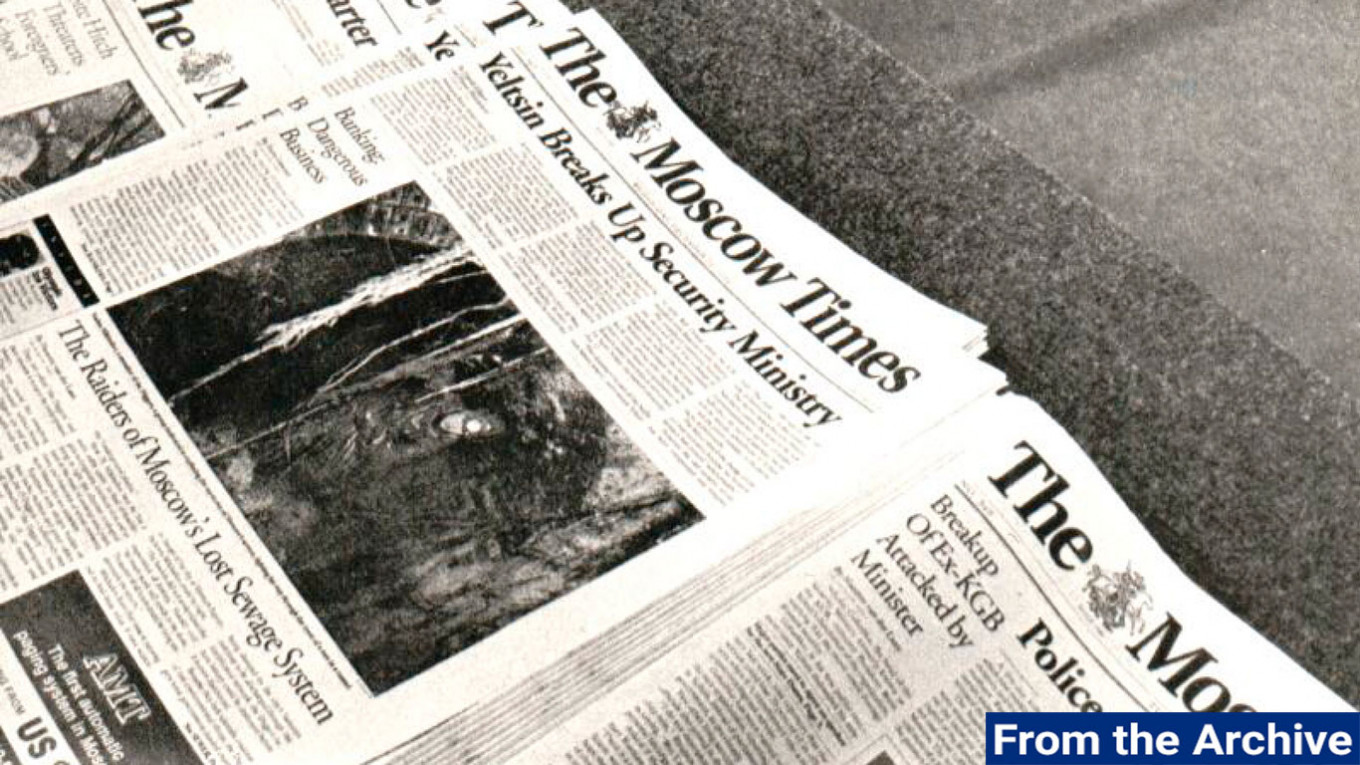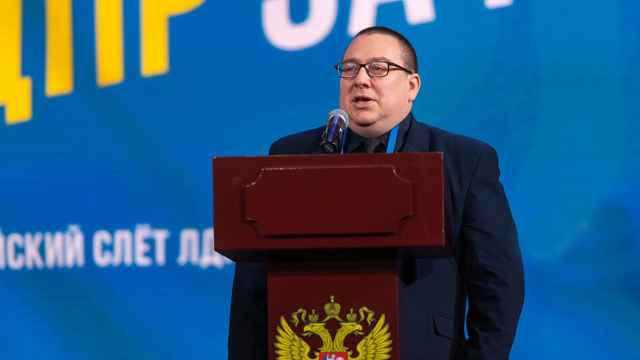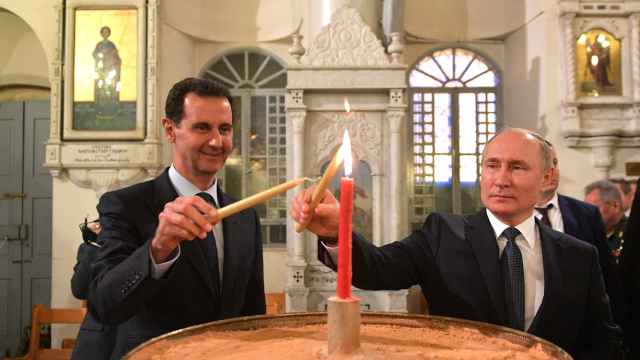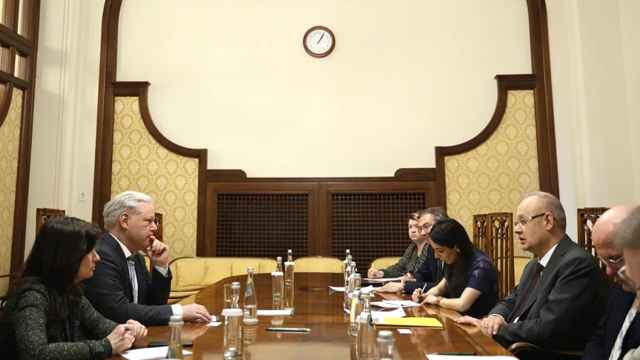Ideology has always played a huge role in Russian life, not only reflecting, but often determining the political reality of the country. The past 10 years in Russia have offered cultural historians an opportunity to see the mechanisms for creating and dismantling ideological models of the state on an unprecedented scale.
The crash of Soviet ideology, the desperate search for a national idea that marked the Yeltsin years, and more recent attempts by President Vladimir Putin to restore the abandoned symbols of national statehood offer fertile ground for reflection on Russia's ideology, national identity, cultural myths and historic parallels.
One of Russia's most prominent cultural historians, Andrei Zorin, has seized this opportunity. His Russian-language book, Feeding the Two Headed Eagle: Literature and State Ideology in Russia in the Late 18th to Early 19th Centuries, is an example of how history can tell more about the modern world than any political analysis. Zorin traces the origins of the cultural myths that have sustained Russia's ideology for more than two centuries. He shows how the notions of Russia's sacredness, the conspiracy of Jews, Freemasons and the West as a source of evil and corruption emerged from the official literature and poetry of the time.
Zorin's view of history is shaped by his experience as someone who has witnessed and experienced the collapse of one ideological system and the emergence of another. This is first and foremost a history book. Equally rich in facts and ideas, it is essential to understanding Russia's body politic.
Zorin commences his exploration with Catherine the Great's famous "Greek project," designed to assert Russia's role and its cultural supremacy in Europe by demonstrating her direct link to ancient Greece. As Zorin shows, the trick of the project was in equating Christian Byzantium with ancient Athens. Having received its Christian religion from Greece, the argument went, Russia was entitled to be considered the only legitimate heir to Greek civilization -- before and above its Western neighbors.
Russia never conquered Greece, but its expansion into Crimea, a land rich in ancient monuments and Greek sites, was seen as a halfway stop on the way to the ancient civilization. The myth of Crimea as Russia's own Arcadia, a paradise on earth, survived throughout the Soviet period. And the loss of Crimea to Ukraine in 1991 was -- and still is -- lamented by the nation more than the loss of any other territory.
The reign of Catherine the Great also started the concept of a Western enemy conspiring against Russian interests -- a concept still with us today. Western Europe, seen as a model of civilization by Peter the Great, was turned, in the ideology of the late 18th century, into a reincarnation of evil, a source of secret societies plotting against Russia. The honorary role of Russia's No. 1 enemy fell to France, but today, the mantle has been passed to the United States.
Looking for enemies and traitors inside and outside Russia has been a tested and reliable way to unite the nation and spark a wave of patriotism. Zorin shows how this need to unite the nation ahead of a patriotic war sealed the fate of Mikhail Speransky, a prominent statesman, reformer and right-hand man to Alexander I, who was abruptly exiled by the tsar in 1812, the year Russia entered the war against France.
The son of a village priest and much hated by the aristocracy, Speransky emerges from contemporary accounts as a traitor who crept to the very top of power, a messenger of dark forces, a French spy corrupted by Jews, a member of a secretive masonic organization aspiring to the Polish crown. Speransky was sacrificed in the name of national unity, and his exile was "celebrated as the first victory over the French."
The mechanisms for creating "enemies of the people," first tried on Speransky, have been reused many times since, and not only by Stalin. This book is subtle and intelligent. It does not draw any explicit parallels between the times of Catherine the Great or Nicholas I and today's Russia -- Zorin is too good a historian for that. But the parallels come across on their own simply because Russia continues to provide examples of ideological models described by the historian.
"Kormya dvuglavogo orla: Literatura i Gosudarstvennaya ideologia v Rossii v poslednei treti XVIII ?€“ pervoi treti XIX veka [Feeding the Two Headed Eagle: Literature and State Ideology in Russia in the Late 18th to Early 19th Centuries by Andrei Zorin. Novoye Literaturnoye Obozreniye, 415 pages, 120 rubles.
Arkady Ostrovsky is a Staff Writer for the Financial Times in London.
A Message from The Moscow Times:
Dear readers,
We are facing unprecedented challenges. Russia's Prosecutor General's Office has designated The Moscow Times as an "undesirable" organization, criminalizing our work and putting our staff at risk of prosecution. This follows our earlier unjust labeling as a "foreign agent."
These actions are direct attempts to silence independent journalism in Russia. The authorities claim our work "discredits the decisions of the Russian leadership." We see things differently: we strive to provide accurate, unbiased reporting on Russia.
We, the journalists of The Moscow Times, refuse to be silenced. But to continue our work, we need your help.
Your support, no matter how small, makes a world of difference. If you can, please support us monthly starting from just $2. It's quick to set up, and every contribution makes a significant impact.
By supporting The Moscow Times, you're defending open, independent journalism in the face of repression. Thank you for standing with us.
Remind me later.






